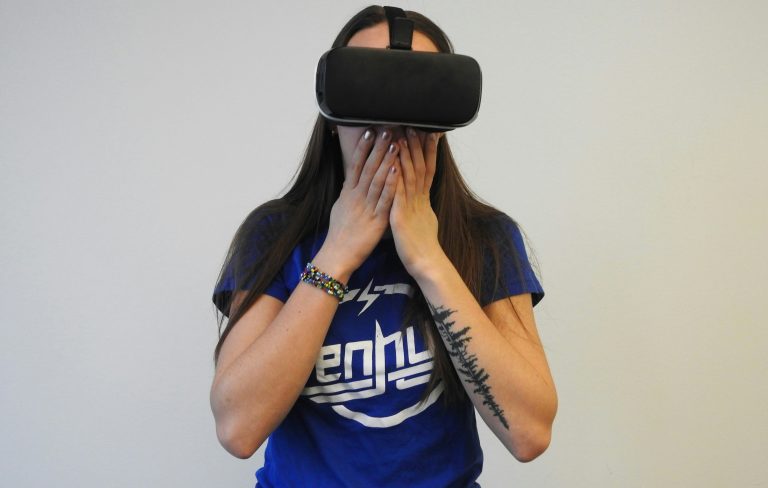How Artificial Intelligence is Changing Content Creation
Artificial Intelligence (AI) has made significant strides in recent years, transforming industries across the globe—and content creation is no exception. In 2024, AI technologies are playing an increasingly prominent role in generating, enhancing, and optimizing content across various forms, from written articles to video production and even social media posts. Here’s how AI is reshaping the content creation landscape:
1. AI-Powered Writing Assistants
- Overview: AI writing tools, such as GPT-4 (like the model you’re interacting with now), are revolutionizing how content is written. These tools can assist with drafting articles, blogs, social media posts, and even novels.
Key Features:
- Content Generation: AI tools can write well-structured, coherent articles on a wide range of topics, reducing the time and effort needed to create written content.
- Editing and Proofreading: Tools like Grammarly and Hemingway Editor use AI to help writers with grammar, spelling, punctuation, and readability, making content more polished and professional.
- Tone Adjustment: AI can adjust the tone of content (formal, casual, persuasive, etc.) based on specific guidelines, helping content creators tailor their writing to different audiences or platforms.
Impact:
- Time-Saving: AI can speed up the content creation process by handling repetitive tasks like drafting initial content or refining drafts.
- Increased Productivity: Writers can focus more on creative aspects while AI handles the technical details, resulting in faster content output.
2. Visual Content Creation with AI
- Overview: AI is also transforming the creation of visual content. Tools that use AI to generate images, videos, and graphics are making it easier to produce high-quality visuals without needing advanced design skills.
Key Tools:
- Image Generators: Platforms like DALL·E and MidJourney use AI to generate images from text prompts, offering creatives new ways to visualize ideas without hiring graphic designers or photographers.
- Video Editing and Generation: AI tools like Runway and Synthesia allow creators to edit videos, generate video content from scripts, or even create deepfake-style videos using AI-generated avatars.
Impact:
- Lower Barriers to Entry: Anyone, regardless of technical skill level, can produce high-quality visuals, reducing the need for expensive equipment or expert design services.
- Faster Production: AI-driven tools can automate aspects of design and video editing, helping creators save time while producing more visual content.
3. Personalized Content Creation
- Overview: AI enables a high level of personalization in content creation, making it easier to target specific audiences with tailored messages, offers, and experiences.
How It Works:
- Data Analysis: AI analyzes vast amounts of user data to understand individual preferences, behaviors, and needs. This allows content creators to produce highly targeted content based on specific user profiles.
- Dynamic Content: AI can dynamically adjust website content, email campaigns, and social media posts to cater to different audience segments. For example, a website can show personalized content to visitors based on their past interactions or browsing history.
Impact:
- Improved Engagement: Personalizing content increases user engagement and relevance, which can drive higher click-through rates and conversions for marketers.
- Customer Loyalty: AI can create more meaningful, personalized experiences for customers, fostering stronger relationships and enhancing brand loyalty.
4. AI in SEO (Search Engine Optimization)
- Overview: AI is becoming indispensable in SEO strategies. AI-powered tools help content creators optimize their content to rank higher in search engine results, improving visibility and traffic.
Key Tools:
- Content Optimization: AI tools like Surfer SEO and Frase analyze top-performing content and provide actionable insights for improving keyword targeting, content structure, and readability.
- Keyword Research: AI tools can predict trending keywords and analyze search intent, allowing creators to optimize their content to meet user needs more effectively.
- Voice Search Optimization: With the rise of voice search, AI is helping content creators optimize for conversational keywords and natural language queries.
Impact:
- Better SEO Performance: AI-powered insights can enhance the quality of SEO strategies, leading to improved rankings and greater organic traffic.
- Time Efficiency: AI can automate much of the manual research and analysis required for SEO, enabling content creators to focus on strategy and quality.
5. AI-Generated Music and Sound Effects
- Overview: AI is also transforming the way music, sound effects, and audio are created for content. From background scores for videos to custom soundtracks for podcasts, AI tools are making it easier for creators to generate audio that fits their content needs.
Key Tools:
- Amper Music: An AI-powered platform that allows users to create custom music tracks by selecting genres, moods, and instruments.
- AIVA: Another AI music composition tool that creates original music for various media projects, including film and video games.
Impact:
- Cost-Effective: AI-generated music and sound effects are more affordable compared to hiring musicians or sound engineers.
- Creative Freedom: Content creators can experiment with different musical styles and compositions, allowing for more dynamic and diverse content creation.
6. AI-Enhanced Social Media Content
- Overview: AI is revolutionizing how social media content is created, curated, and optimized. AI tools help creators generate engaging posts, analyze audience reactions, and optimize content for different platforms.
How It Works:
- Content Scheduling and Automation: AI tools like Hootsuite and Buffer can automatically schedule posts at optimal times, based on when users are most likely to engage.
- AI for Engagement: AI tools can analyze social media trends and automatically generate captions, hashtags, and even responses to comments or messages.
- Content Curation: AI can suggest content ideas based on trending topics or user interests, helping creators stay relevant and timely.
Impact:
- Increased Efficiency: AI automates routine tasks like scheduling and monitoring social media, freeing up time for creators to focus on content strategy and interaction with their audience.
- Improved Engagement: AI helps creators craft more engaging content by suggesting trending topics, optimizing hashtags, and responding to followers quickly.
7. Deepfake Technology and Ethical Considerations
- Overview: AI-driven deepfake technology, which can create hyper-realistic fake videos or images, has raised concerns about misinformation and the potential for harmful content creation. However, it also has legitimate uses in entertainment and content creation.
Key Applications:
- Film and Entertainment: AI is used to generate realistic CGI characters, de-age actors, or even create entire performances from scratch.
- Marketing and Advertising: Brands use AI to create personalized video ads, incorporating their customers’ faces into content or creating immersive ads for social media.
Impact:
- Ethical Concerns: Deepfake technology raises the risk of misinformation and misuse. It’s essential for creators to use it responsibly and consider the ethical implications.
- Creative Innovation: When used responsibly, deepfake technology opens new creative possibilities for filmmakers, marketers, and advertisers.
Conclusion
AI is dramatically reshaping content creation, making it faster, more efficient, and more personalized. From writing and visual design to SEO and social media management, AI tools are empowering creators to produce high-quality content with less effort. However, with these advancements come new challenges, such as ethical concerns around deepfake technology and the need for content creators to adapt to ever-evolving AI tools.
In 2024, expect AI to become even more integrated into content workflows, pushing the boundaries of creativity and innovation while raising important questions about privacy, authenticity, and accountability in digital content.
How do you see AI impacting your content creation process, or are there any tools you’re particularly excited to try?






